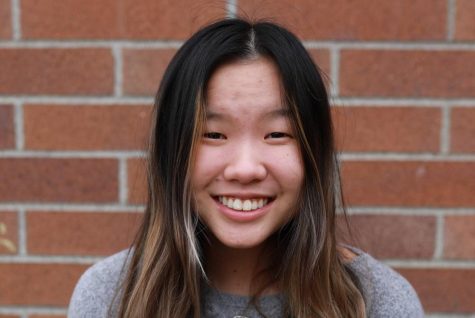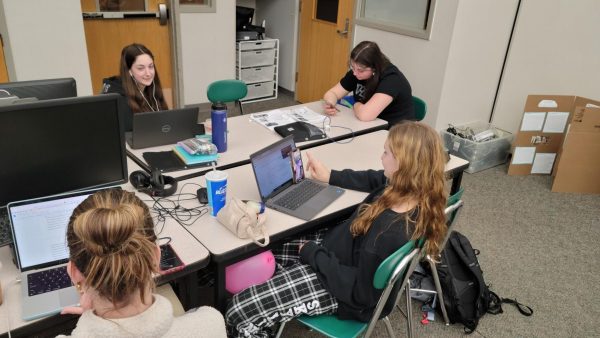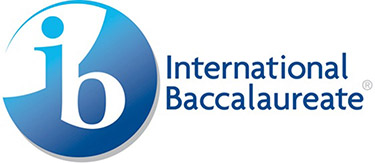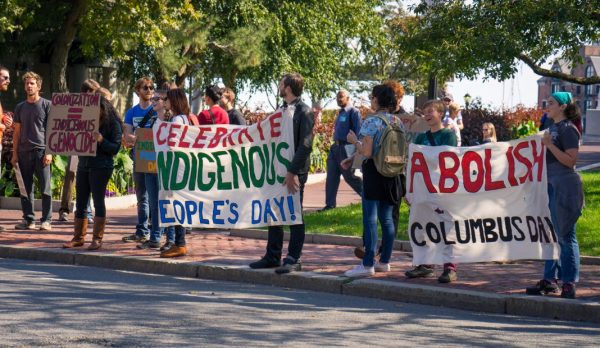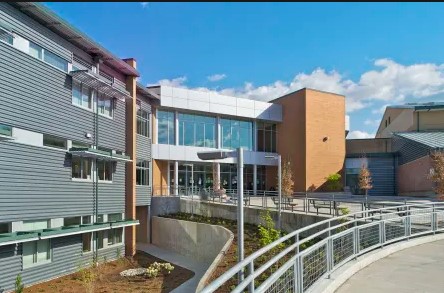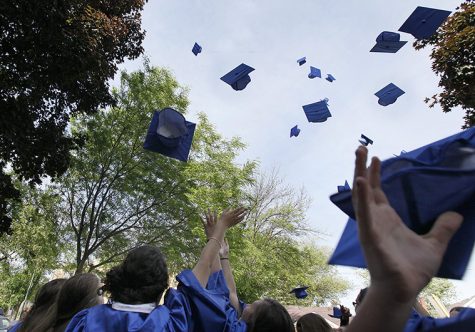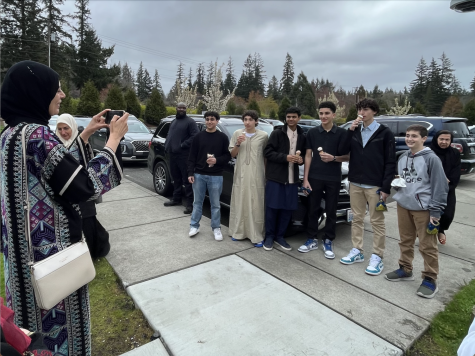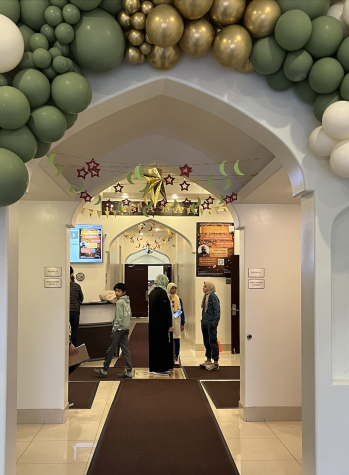‘You learn by doing. You learn by having conversations’: Black Student Union Pushes to Have Black History Awareness Throughout the Entire School Year, Not Just During February
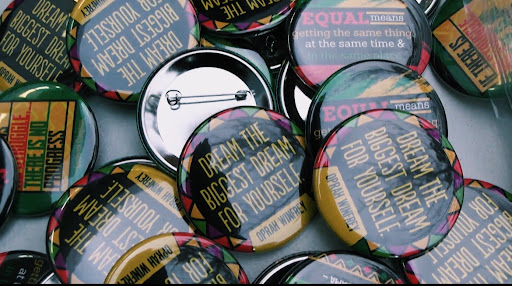
February 19, 2022
Posters line the Skyline commons displaying MLK, Malcom X and Rosa Parks in celebration of Black History Month, but amongst those historical figures is Mae C. Jemison, the first female African American astronaut to travel into space.
Students have been hearing the words of Martin Luther King Jr, Rosa Parks and Malcolm X since they were old enough to understand the Civil Rights movement. As February comes to an end, it is important to reflect on what this month is really about, and the impact that it has.
Society has become accustomed to scratching the surface level of what it means to have a Black History Month, failing to recognize other significant aspects of Black history.
“I think a lot of times that happens when you hear about Black history and when people talk about it, you only hear about slavery.” Kamrica Ary-Turner said, Assistant Vice Principal of Skyline. “And that is a problem when you are only perpetuating the harm and the negative stories or the hurtful stories.
While there has been some Black history integrated into lesson plans and the curriculum, it seems to only emerge during the month of February, leaving some students, in particular African American students, feeling like no one really cares about learning.
“Sometimes Black history comes up, but not enough,” said Kendy Berndt, a Freshman at Skyline.
Accomplishments of African Americans are overseen and the themes of Black history ultimately stay the same. Yes, there has been a slight improvement over the past years, but understanding and awareness are still stagnant.
“We’ll put a poster up for Black History Month. We’ll post something on social media about it. But what is the action behind all of that,” Ary-Turner said.
Most school districts have an equity team dedicated to promoting diversity and equity in schools. But Kamrica Ary-Turner, an advocate for equity says it is important that this is not just the focus for one month out of the year.
“Don’t just say that you are doing something just to say you did it. If you really are a part of it, first of all you don’t need to celebrate Black History Month only in February,” Ary-Turner said. “We should be learning about all cultures over the course of time throughout education.”
It’s common to look at important figures fighting for civil rights, but that is sometimes where the conversation ends.
“We don’t talk about Madam C.J. Walker who created the flatiron, we don’t talk about “unpopular” folks. Instead, we just stay with the same themes.” Ary-Turner said. “I just think it is time to make a shift, so you aren’t pocketing the stereotypical forms that African American people have been put in.”
Although studying about MLK and other well-known African American figures is important, there is an abundance of Black history that many students and society as a whole haven’t heard about.
Despite that there is still some growth to be made in acknowledging Black History Month and its significance, there has been an increase of youth in today’s generation advocating for awareness, not just amongst African Americans, but other cultures as well. Amidst those eager minds is Skyline High School’s Black Student Union (BSU).
In the earlier months of this year, the Black Student Union was established for the first time in Skyline history. Odds are that many students are unaware of what a Black Student Union is, or what they do.
“[The] Black Student Union is a place where people can come together and hope to learn and educate [themselves] about current situations with Black people and Black history.” BSU Vice President, Sydney Flennaugh said. “And how to improve our school to make it a safer and more welcoming place for Black people.”
Black Student Unions have been around since the 1960s, advocating and educating students. In 1966, a group of students at San Francisco State University (SFSU) formed the first Black Student Union. Shortly after, universities all around the country were forming BSUs.
Especially in the month of February, the BSU wanted to increase the student body’s awareness of Black History Month in a community with lower African American demographics.
Skyline High School has a 1.2% African American population. With this in mind, the BSU strives to create a safe environment for African American students and allies.
“I think people love to be validated. For who they are, it could be skin color, racial background, ethnicity, or culture.” Todd Caffey said, BSU club advisor and school counselor. “There’s a counselor named Carl Rogers whose theory was seeing his clients with positive genuine regard. I think that’s what I’ve always strived to live by and I think it applies not only to people in general but also particular issues around race or culture. Stuff from the BSU that we are talking about.”
One objective the BSU has been focused on is spreading awareness on Black history not only in the month of February but throughout the school year as well. They have also been working on highlighting Black Excellence, the accomplishments and successes of African Americans.
“What BSU decided to do was celebrate Black Excellence this year. There are several different inventions and people that go unnoticed.” Ary-Turner said. “We are worried about rapping, basketball, football, and sports. All those other distractions. That is not what Black people are as a whole. We really need to do a better job of being mindful of full representation of what it means to be Black.”
Since the BSU’s establishment, they have received outpouring support from other clubs on campus. “We just started working with the Artistry club to figure out how to promote BSU through art. And we recently finished the MLK assembly. We are still getting started.” Flennaugh said.
Aside from working with ASB, the BSU recently engaged with students to sign pledges recognizing Black history month. In addition to helping out at campus, the BSU focuses on support and connection between its members. The Black Student is welcome to all students on campus looking to support and educate themselves on current issues or achievements surrounding African Americans.
“I think there is value in just meeting and supporting each other as a club. We don’t necessarily have to have 7,000 activities that we do throughout the year. Sometimes meeting as a club and just supporting one another and having great discussions is enough,” Caffey said.
Overall, it is important to always check the box of equity and awareness, not just during the months it is celebrated or “trending”. Continue to learn, deepen your understanding of different cultures and spread awareness when an opportunity strikes.
When asked how students can start to engage and educate themselves, Ary-Turner said, “You learn by doing. You learn by having conversations… And if you aren’t open to listening to other people’s stories you aren’t going to enrich your life as much as you could.”
For more information on the BSU, visit one of their meetings held every Wednesday @4 in room 1105.
Listed below are additional resources to further educate yourself on Black history:
- Learning for justice
- Education World
- We Are Teachers
- NEA: http://www.nea.org/tools/lessons/bhm-curriculum-resources-grades9-12.html
- Science: http://sciencenetlinks.com/lessons/african-americans-in-science/
- Science: http://african-americaninventors.org/
- PBS Learning Media (teacher can select grade level)
· Afro- Latinos: https://www.speakinglatino.com/afro-latino-and-black-history-month

